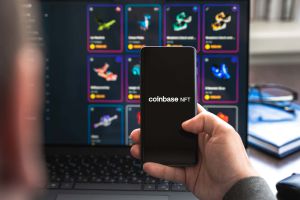
The Ultimate Dictionary of Terms for Web3 Marketers
A
Address (noun)
- A unique string of numbers or text appointing a wallet’s location on a blockchain.
Access Tokens (noun)
- Grants access to premium features on a platform or to a community. The token is a tradable membership for exclusive experiences.
Airdrop (noun, verb)
- Crypto projects use this marketing technique to send their tokens (e.g. coins and NFTs) directly to wallets to raise awareness.
Alpha (noun)
- Valuable advice, recommendations, or info given by someone in a position of knowledge.
Altcoin or Alts (noun)
- Refers to cryptocurrency that is not Bitcoin such as newer projects with a smaller market cap. Alts is short for Altcoins.
Ape (noun, verb)
- Someone who invests heavily, sometimes all-in, in cryptocurrency as a reaction to hype or FOMO. It is not meant negatively towards someone but rather as a self-assigned term. E.g. I am apeing into Ethereum.
ATH & ATL (noun)
- ATH is short for ‘all-time high’. The highest price point an asset has ever had. ATL is short for ‘all-time low’, the lowest price point an asset has ever had.
B
Bear Market (noun) & Bearish (adjective)
- A market is bearish when there is a prolonged downward pricing trend and a pessimistic outlook. Sometimes purposely misspelled as beras.
Block (noun)
- A block is a batch of data transactions stored on the blockchain.
Blockchain (noun)
- A digital list of data records. Records are called blocks which are organized in chronological order, linked together like a chain, and secured using cryptography.
Block Explorer (noun)
- A tool used to examine detailed information on blockchains. (E.g. Etherscan for the Ethereum blockchain)
Buidl (noun, verb)
- meaning ‘build’, a misspelling on purpose used in crypto communities just like HODL (hold).
Bull Market (noun) & Bullish (adjective)
- A market is bullish when there is a prolonged upward pricing trend and an optimistic outlook.
Burn (verb)
- A strategy where tokens or other digital assets like NFTs are removed from a circulating supply to influence price and demand. Bitcoin and Ethereum don’t have this, but many other Altcoins do.
C
Centralized (adjective)
- In a centralized network, there is a central authority that governs and handles the network.
CEX or Centralized Exchange (noun)
- An exchange handling cryptocurrency managed by a centralized business. (E.g. Coinbase, Kraken)
CeFi or Centralized Finance (noun)
- Centralized businesses participating in crypto. (E.g. BlockFi)
Coin (noun)
- Cryptocurrency built on its own native blockchain, with the purpose to store value and serves as an medium of exchange within that specific ecosystem. (E.g. ETH, BTC)
Cold Wallet (noun)
- A hardware device used to store cryptocurrency.
Consensus (noun)
- A collective judgment in which data processors, called nodes, come to an agreement to verify new transactions and blocks to be added to the blockchain. This process is used by consensus mechanisms such as proof of work and proof of stake.
Cryptocurrency (noun)
- A digital currency designed for use as money within a digital ecosystem. It is a medium of exchange, storing value, etc. They are maintained by blockchains.
Cypherpunk (verb)
- Someone who believes in the use of cryptography to affect social and political change through privacy by cryptography. (E.g. Satoshi Nakamoto, anonymous founder of Bitcoin.)
D
DAO or Decentralized Autonomous Organization (noun)
- An organization is governed by its users or token holders through voting. DAO’s are open-source and often focus on a specific project or goal.
Dapp or Decentralized Application (noun)
- A software application that runs on a distributed network. It’s not hosted on a centralized server, but instead on a peer-to-peer decentralized network.
Decentralized (adjective)
- Centralized businesses participating in crypto. (E.g. BlockFi)
Degen (noun, adjective)
- Like ‘Ape’ a self-assigned term. Short for ‘degenerate gambler’, an individual taking risky bets. “I bought the dip before paying my rent. I’m such a degen.”
DeFi or Decentralized Finance (noun)
- A term used for financial services on public blockchains such as Ethereum. It serves peer-to-peer, is open to all, and supports functions such as earning interest, borrowing, trade, and more.
DEX (noun)
- A peer-to-peer cryptocurrency exchange built on the blockchain. It is run on smart contracts and by its users. (E.g. Uniswap)
Diamond Hands (noun, adjective)
- You have diamond hands when you are bullish on a certain asset and are not planning to sell it. Antonym of paper hands.
DYOR or do your own research
- A reminder to conduct your own research before investing. “This NFT project is looking good, but DYOR.”
E
ERC-20, ERC-223, ERC-721, ERC-1155, etc. (adjective)
- Ethereum token standards that allow certain structures of data. For example, ERC-1155 is often used in gaming and collectibles to reduce the number of transactions as they can be managed simultaneously by a single smart contract.
Ethereum (noun)
- A public blockchain with the purpose to build and deploy decentralized applications. It has its own programming language called Solidity.
F
Few
- Short for ‘Few Understand’. Meaning you are still early in the industry and will make a lot of money when mass adoption arrives.
Fiat (noun)
- Currency often backed and regulated by a government. (E.g. USD, EUR)
FOMO or Fear of missing out (noun)
- The fear of not being included in something that others are experiencing or gaining benefit from. FOMOing often happens after a price increase.
FUD or Fear, Uncertainty and Doubt (noun)
- Fake negative news around an asset.
Fungible (adjective)
- Term for interchangeable. Changeable for something else. Antonym of non-fungible.
G
Gas (noun)
- The fee paid by a user that is required to run a transaction or execute a smart contract on certain blockchains like Ethereum. (Also GWEI, WEI)
Genesis Block (noun)
- The first block recorded on a blockchain. Unlike other blocks, it must be hardcoded into the software, since there are no previous blocks for the genesis block to reference.
gm
- Short for ‘good morning’. A common greeting used in crypto communities.
GMI
- Short for ‘gonna make it. Frequently used in the crypto community to support positivity for a project or person. Antonym of NGMI (not gonna make it)
Gwei (noun)
- A value of ETH used as a unit of measurement to calculate the Ethereum gas price.10^9 gwei = 1 ether.
H
Hard Fork (noun, verb)
- A permanent new version of a blockchain that required a change to the previous protocol. (E.g. Ethereum Classic & Ethereum)
Hashing (verb)
- the process of taking any kind of input of any size and reducing it to a unique identifier code. This allows data to be stored securely and recalled. This is a fundamental principle of blockchain technology.
HODL (verb)
- A misspelling of ‘hold’ that was popularized and frequently used in crypto communities. It means to hold your assets and not sell them.
Holding the bag
- When an asset you own quickly drops and are left with an unfortunately low-valued asset, but are not selling. You are now holding the bag of a worthless coin.
I
ICO or Initial Coin Offering (noun)
- An ICO is a popular crowd fundraising tactic for startup cryptocurrency projects, in which a percentage of the initial token supply is sold to early supporters.
IEO or Initial Exchange Offering (noun)
- Like an ICO a means to raise capital but regulated by a trusted exchange. A way to make ICOs more secure.
K
Key (noun)
- Consists out of a public and private key that refers to your wallet address. A public key is similar to a bank account number, a private key is often revered as a way to access your funds. Only to be known by its owner.
L
L1-Layer 1 & L2-Layer 2 (noun)
- The L1-layer 1 is the base layer of the blockchain platform. Also refers to mainnet or mainchain (E.g. Solana, Cardano, Ethereum, Polkadot.) The L2-layer 2 refers to protocols, or solutions, built on top of the L1 layer. (E.g. Lightning network),
Lambo (noun)
- Short for Lamborghini. Often a not-so-serious milestone of committing to an investment. The term is often used in crypto and degen spaces. For instance ‘Wen Lambo?’ roughly translates to ‘I just purchased this ape NFT for 0.03 ETH. When will my investment reach the value to buy a Lamborghini?’
Liquidity Pool (noun)
- The pool of tokens locked in the smart contract. By offering liquidity, they guarantee trade and are used widely by some decentralized exchanges.
M
Mainnet (noun)
- Short for main network or main layer of a blockchain.
Market Cap (noun)
- The total value of all the coins that have been mined. It’s calculated by multiplying the number of coins in circulation by the current market price of a single coin.
Mining (verb)
- The process of mining is generally used in reference to a type of distributed consensus mechanism called Proof of Work. Mining means verifying transactions, organizing them into blocks, and then adding blocks to the blockchain often in exchange for a reward.
Minting (verb)
- The process of validating information, such as domain ownership, or generating a unique NFT, and registering that onto the blockchain.
Mooning (verb)
- Refers to an asset rising so high in value it reaches the moon. To the moon!
N
NFT or Non-Fungible Token (noun)
- Short for main network or main layer of a blockchain.
NGMI
- Short for ‘not gonna make it’. Implied when a project has a low chance of becoming valuable or when a person made a bad investment.
Nocoiner (noun)
- The muggles of the crypto world. Someone. who does not hold any cryptocurrencies.
O
Oracle (noun)
- A service supplying smart contracts with data from the outside world. Smart contracts are unable to access data that exists off-chain, so they rely on oracles to retrieve, verify, and provide external information. (E.g. Chainlink)
P
Paper Hands (noun, adjective)
- A term to describe an individual who sold an asset as its price was falling. One with paper hands is supposed as weak and not able to stomach the volatility of the market. Antonym of Diamond Hands.
Private Key (noun)
- A passcode to access funds and authorize transactions. Because they are hard to memorize wallets provide a seed phrase or recovery key that is easier to remember.
PoS or Proof of Stake (noun)
- a consensus mechanism that requires nodes, called validators, to stake a set amount of cryptocurrency on the blockchain in order to verify transactions and mint blocks. If a validator approves fraudulent transactions, then a portion of their stake will be slashed.
PoW or Proof of Work (noun)
- A consensus mechanism that requires miners to complete complex mathematical puzzles in order to verify transactions and mint blocks. When a miner correctly solves a puzzle, they gain access to mint the next block and receive the corresponding block reward and transaction fees.
Public Key (noun)
- A public key is similar to a bank account number.
Pump and dump (noun, verb)
- A manipulative scheme that attempts to boost the price of a stock or security through fake recommendations. This is often done so assets can be sold at a high value for the orchestrators of the scam.
R
Rekt (verb, adjective)
- Short for “wrecked,” used to express that one has suffered a huge loss.
Rug Pull (noun, verb)
- A scam where a crypto project takes the funds that have been invested and runs. Happens when someone is able to sell a large portion of the circulating supply at once.
S
Seed Phrase (noun)
- A master password to access a crypto wallet.
Ser (noun)
- Meaning sir. An intentional misspelling in communities. ‘Gn sir’.
Shill (verb, noun)
- To heavily promote a cryptocurrency or NFT collection in an effort to raise its price and adoption. Usually done by spamming on Twitter and Discords. ‘I’ve shilled $SHIB for months, wen Lambo?’
Shitcoin (noun)
- A cryptocurrency with bad fundamentals and no good use cases.
Slippage (noun, adjective)
- the price of a cryptocurrency may change between the time an order is placed and the time that order is ultimately filled. Slippage is the difference between a cryptocurrency’s quoted price and the price that a trade actually executes at.
Smart Contract (noun)
- Self-executing code deployed on a blockchain, designed to autonomously execute agreements independently of third parties. Smart contract code typically acts according to conditional statements (“if/then”), executing a predetermined action when a predetermined source asserts that the contract’s antecedent condition(s) obtains.
Stablecoin (noun)
- A type of cryptocurrency designed to have low volatility, and so maintain a stable market price. Mechanisms for maintaining a stable price vary.
T
Testnet (noun)
- An environment that mimics a mainnet Blockchain. Used to test network upgrades and smart contracts before deploying them on the mainnet.
Token (noun)
- unlike a coin, a token is a digital asset created on an existing blockchain. Tokens can be used to represent digital and physical assets, or used to interact with dapps. (E.g. Link, UNI, AAVE)
TPS or Transactions per Second (noun)
- The number of transactions that a blockchain can handle per second
Transaction (noun)
- Data added to the blockchain.
Txn Hash (noun)
- Short for transaction hash, or transaction ID. This is a unique identifier used to represent a specific transaction
W
WAGMI
- Short for “we’re all gonna make it”. A saying in crypto for a positive outlook and camaraderie.
Wallet (noun)
- A software application or hardware device used to store the private keys to blockchain assets and accounts. Unlike a traditional wallet, a blockchain wallet does not actually store the coins or tokens themselves. Instead, they store the private key that proves ownership of a given digital asset. (E.g. Metamask, Trustwallet)
Web1 (noun, adjective)
- Commonly referred to as the ‘read-only’ web. It is characterized by static websites that displayed information with no user-generated content or no interactions.
Web2 (noun, adjective)
- The ‘read-write’ web with user interactions and user interfaces led to various platforms such as Facebook, Wikipedia, and Youtube. It has a focus on user experience.
Web3 (noun, adjective)
- A broad, next-generation web architecture that aims to distribute ownership and control of personal data, identity, and associated value directly to its participants. Envisioned as a ‘server-less network. Web3 aims to eliminate single points of failure where big technology companies own most of the data. Also referred to as the ‘read-write-trust web.’
Support
If you liked the article sharing it on Twitter is really appreciated. Thank You!



